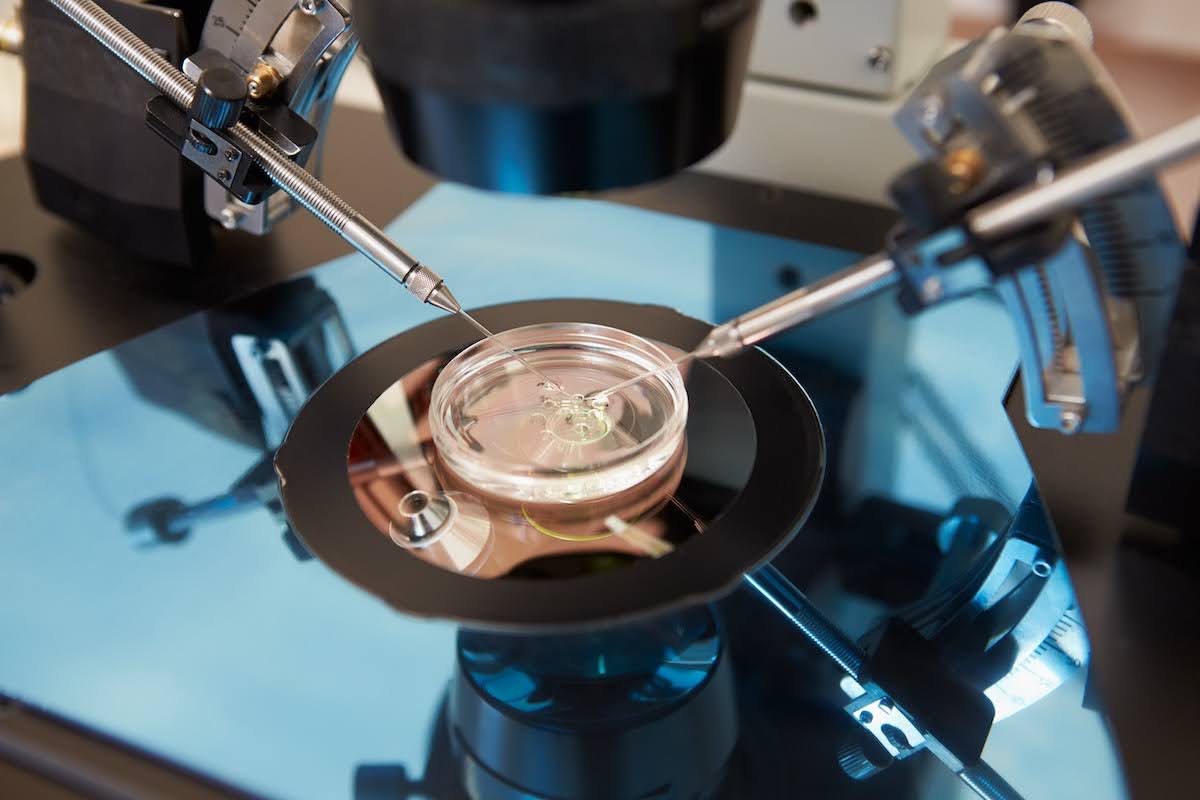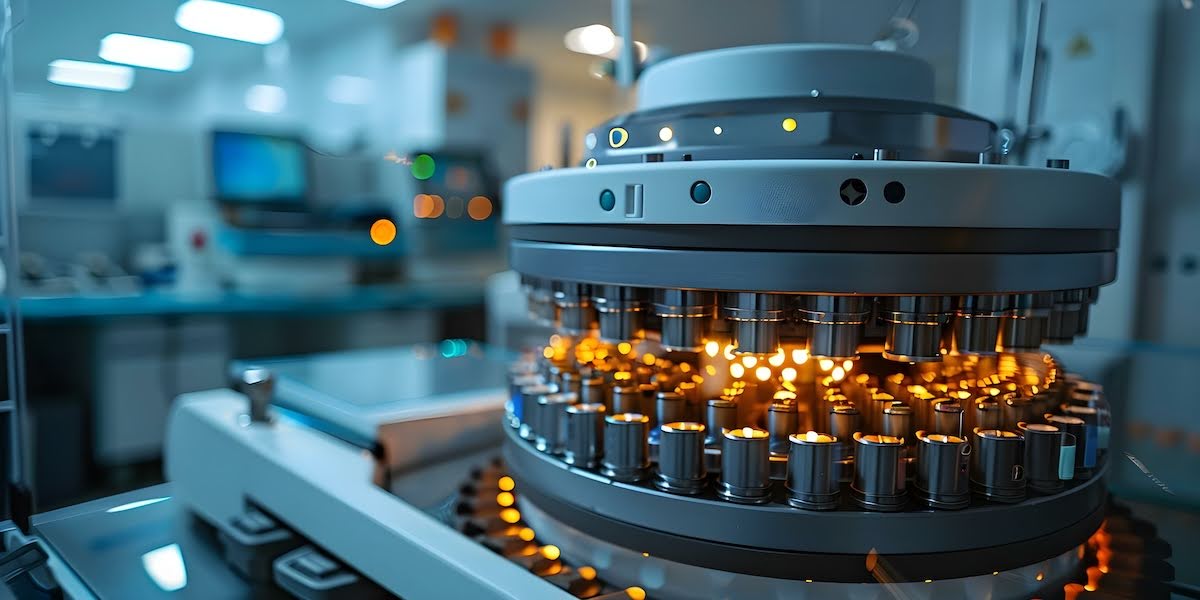In vitro fertilization (IVF) has long been a beacon of hope for many aspiring parents facing fertility challenges. This process involves several steps, with embryo selection standing out as particularly critical. Traditionally, this step has relied heavily on the judgment and experience of embryologists. However, reproductive medicine is now experiencing a shift with the introduction of artificial intelligence (AI).
AI is set to revolutionize this process by leveraging advanced algorithms to enhance the accuracy of embryo selection, potentially boosting IVF success rates significantly. This approach promises to transform the prospects of parenthood for countless individuals and couples around the world.
The Role of AI in Embryo Selection
Artificial intelligence is dramatically enhancing the field of embryo selection in IVF treatments by utilizing its capability to process and analyze large datasets of embryo imagery. This technology leverages patterns from these datasets to assess embryo viability with a precision that far surpasses traditional human analysis.
Understanding Embryo Viability: AI systems are trained on vast collections of embryo images, each annotated with outcomes from past IVF cycles. By analyzing these outcomes, AI can identify patterns and features most indicative of successful implantation and development. This involves a detailed examination of factors such as the morphology of the embryo — its shape, size, and structure — as well as the rate and pattern of cell division.
Technological Insights: The algorithms used in AI systems can assess multiple dimensions of embryo health simultaneously. For example, they can evaluate the genetic indicators that might predict an embryo’s viability, such as chromosomal normality, without requiring invasive procedures. AI does this by correlating visual and developmental characteristics of embryos with their genetic profiles, which have previously been established through genetic testing.
Enhanced Precision and Consistency: One of the standout features of AI in embryo selection is its ability to maintain high levels of precision and consistency in its assessments. AI systems provide consistent results, unlike human embryologists, whose evaluations may vary due to subjective interpretations or physical fatigue. They apply the same criteria uniformly across all embryos evaluated, ensuring that every decision is based solely on the most predictive indicators of success.
Technological Advancements in AI for Embryo Selection

The field of AI in embryo selection has seen remarkable advancements due to innovations in machine learning and computer vision. These technologies have been pivotal in integrating AI into the embryo selection process, significantly improving key success metrics such as implantation rates and live birth outcomes.
- Machine Learning Enhancements: Machine learning algorithms have grown increasingly sophisticated and can learn complex patterns in data without explicit programming. In the context of IVF, these algorithms analyze vast amounts of data from embryo development to identify which embryos are most likely to lead to successful pregnancies. The algorithms adapt and improve over time, refining their predictions based on new data, which enhances their accuracy and reliability.
- Advances in Computer Vision: Computer vision has allowed AI systems to analyze visual information from embryo images with extraordinary detail. This technology can detect subtle nuances in embryo morphology that might escape the human eye. By automating the analysis of visual data, AI can consistently apply the same rigorous standards to every embryo evaluated, reducing the subjectivity that can sometimes influence human judgment.
- Impactful Outcomes From Research: One of the most compelling pieces of evidence for the efficacy of AI in this field comes from a study conducted by the Crete Fertility Centre. Their research highlights the potential of using AI for embryo selection to significantly improve IVF outcomes. The study underlined the profound impact these AI-based technological advancements could have by enabling a more accurate and consistent selection of viable embryos compared to manual evaluation by embryologists alone. While more research is still needed, their findings supported the promising role AI can play in increasing success rates for IVF patients.
Benefits of AI Over Traditional Methods in Embryo Selection
AI in embryo selection offers several significant advantages over traditional methods that rely on the subjective assessments of human embryologists. These benefits not only enhance the efficacy of in vitro fertilization (IVF) treatments but also reduce the risks associated with them.
Consistency and Objectivity: One of the primary advantages of AI is its ability to maintain consistency and objectivity throughout the embryo evaluation process. Unlike human embryologists, who may experience fatigue or have inherent biases, AI systems apply the same criteria uniformly to all embryos. This ensures that each embryo is assessed based on the same standards, minimizing human error and increasing the reliability of embryo selection.
Advanced Data Analysis: AI systems can process and analyze a vast amount of data at an unparalleled speed. This capability allows for the detection of subtle and complex patterns that might be overlooked by human observers. For instance, AI can analyze slight variations in cell division patterns or morphological features that are predictive of an embryo’s viability, which are often too minute for the human eye to catch consistently.
Non-Invasive Techniques: Traditional methods of assessing embryo viability often involve invasive procedures, such as biopsies for preimplantation genetic testing. These methods carry inherent risks and can potentially harm the embryos. AI, however, offers a non-invasive alternative by using predictive analysis based on visual and developmental cues from the embryos. This reduces the physical handling of embryos and decreases the likelihood of inducing stress or damage to them.
Risk Reduction: By employing non-invasive and highly accurate assessment techniques, AI reduces the risks associated with embryo selection. This not only leads to higher success rates in implantation and live births but also lowers the overall health risks to both the embryos and the prospective mothers.
Case Studies and Current Research
Several groundbreaking studies have highlighted the transformative potential of AI in embryo selection. The Crete Fertility Centre’s study, mentioned earlier, showcased the remarkable improvement in live birth rates achieved through AI-assisted embryo selection.
Researchers at Weill Cornell Medicine have developed a non-invasive AI-based approach to predict embryo viability, potentially reducing the need for invasive procedures and associated risks. Their findings have been published in prestigious scientific journals, garnering significant attention from the scientific community.
Systematic reviews published on PubMed Central have synthesized the available evidence, comparing the performance of AI algorithms with that of embryologists. These reviews have demonstrated the superiority of AI-enhanced methods in terms of accuracy, consistency and efficiency.
While these studies have been conducted in various settings and populations, their collective findings underscore the generalizability and robustness of AI-based embryo selection techniques, paving the way for widespread adoption in IVF clinics worldwide.
Implementing AI in Clinical Settings

The integration of AI into clinical settings for embryo selection is a multifaceted process that requires meticulous planning and adherence to stringent standards. Here are some of the key considerations involved:
Validation and Regulatory Compliance: AI systems must undergo rigorous validation to ensure their reliability and accuracy in clinical applications. This involves extensive testing against known outcomes to refine the algorithms and eliminate any potential biases. Additionally, these systems must comply with medical regulatory standards, which vary by region but typically include approvals from bodies like the United States Food and Drug Administration. This ensures that the AI tools used are both safe and effective for clinical use.
Staff Training and Adaptation: The successful implementation of AI also depends on the preparedness of the clinic’s staff. Training for embryologists, clinicians and support staff is essential to ensure they are well-equipped to use new AI tools. This training covers not only the operational aspects of the technology but also the interpretation of AI-generated insights, which can be quite different from traditional methods.
Data Privacy and Security: As AI systems require access to vast amounts of sensitive patient data to function effectively, maintaining data privacy and security is paramount. Clinics must implement robust cybersecurity measures and adhere to data protection regulations, such as HIPAA in the United States or GDPR in Europe, to safeguard patient information.
Interdisciplinary Collaboration: Effective AI implementation also requires collaboration across various disciplines. This includes teamwork between AI developers, healthcare professionals, ethicists and legal experts to address any ethical, legal and practical challenges that can arise. This collaborative approach helps fine-tune the AI systems to clinical needs and ensures that ethical standards are maintained.
Addressing Implementation Challenges: Despite the best preparations, challenges such as integration with existing systems, scaling the technology for widespread use and ongoing updates to the AI models in response to new data or findings are common. Proactive management of these issues is crucial for maintaining the efficacy and accuracy of AI applications in clinical environments.
Future of AI in Reproductive Medicine

As we look to the future, the potential for AI in reproductive medicine extends far beyond current applications. AI is poised to revolutionize the field by personalizing treatment plans and refining various aspects of IVF, from ovarian stimulation protocols to precise timing for embryo transfer. These advancements aim to increase both the efficacy and efficiency of treatments, tailoring them to each patient’s unique genetic and physiological profiles.
Personalized Treatment Plans: AI can analyze historical data and ongoing treatment responses to optimize individual treatment strategies. This could involve adjusting medication dosages or timing interventions based on predictive analytics, leading to higher success rates and fewer side effects.
Integration with Genomics: By coupling AI with genomics, clinicians can gain deeper insights into the genetic factors that influence fertility. AI can help interpret complex genomic data, identifying patterns that may predict patient responses to certain treatments or the health outcomes of potential offspring. This integration holds the promise of enhancing embryo selection, identifying the most viable embryos with genetic traits that could lead to successful, healthy pregnancies.
Enhanced Embryo Development Monitoring: AI technologies can also be used to monitor embryo development more closely in the lab, predicting which embryos are most likely to thrive post-transfer. This involves real-time analysis of growth patterns and developmental milestones, ensuring that only the most promising embryos are chosen for implantation.
Optimizing Lab Conditions: Further applications of AI could include the automation and optimization of environmental conditions within IVF labs. AI systems could dynamically adjust conditions such as temperature, humidity and light, which are critical for optimal embryo development, based on real-time data.
Ethical and Regulatory Evolution: As these technologies develop, the ethical and regulatory frameworks governing their use will need to evolve as well. This will ensure that advances in AI and genomics are implemented responsibly, with consideration for the privacy, autonomy and well-being of patients.
Considering Becoming a Surrogate or Intended Parent?
AI’s integration into reproductive medicine is revolutionizing IVF treatments, enhancing precision in embryo selection and offering personalized care plans. This innovation increases the likelihood of successful pregnancies and optimizes treatment experiences.
At Joy of Life, we are committed to embracing these advanced technologies, ensuring our surrogates and intended parents benefit from the latest developments in reproductive health. Whether you’re considering starting a family or becoming a surrogate, discover how AI can support your journey. Explore your options and apply to become a surrogate or an intended parent today to take the first step toward surrogacy with Joy of Life.










